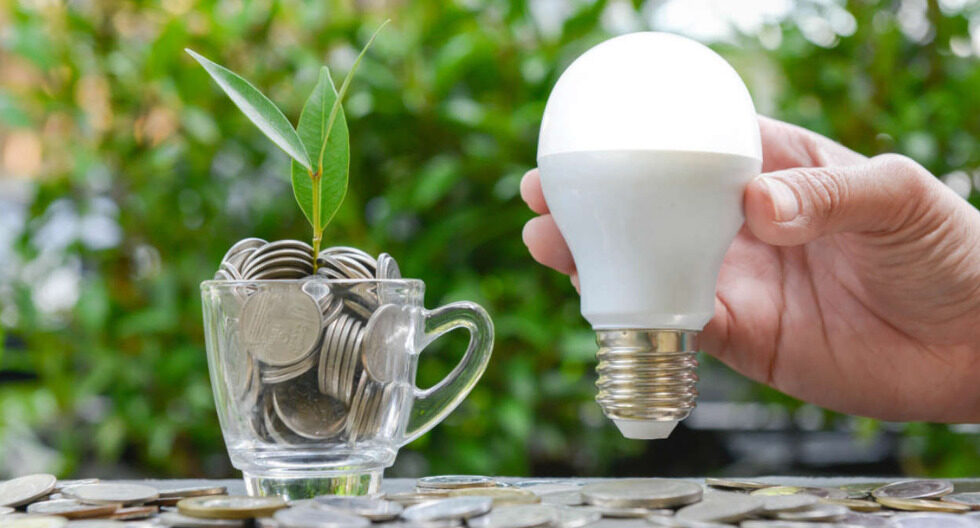
1. Introduction: Taking Small Steps Towards a Greener Home
🌿 Welcome to our blog post on taking small steps towards a greener home! In this article, we will explore simple yet effective ways to make your home more environmentally friendly. With the increasing concern for the planet, it is crucial for each one of us to contribute to sustainable living. By making conscious choices and adopting eco-friendly practices, we can make a positive impact on the environment and create a healthier home for ourselves and future generations.
🌱 Going green doesn’t have to be overwhelming or expensive. By starting small and gradually incorporating environmentally friendly practices into our daily lives, we can make a significant difference. From energy conservation to waste reduction, there are various areas where we can make sustainable choices. In this article, we will delve into practical tips and ideas that can help you create a greener home without compromising on comfort or style.
💡 One aspect of creating a greener home is by focusing on energy efficiency. By making simple changes like replacing traditional light bulbs with energy-efficient LED ones, installing programmable thermostats, and properly insulating our homes, we can reduce our energy consumption and lower our carbon footprint. Additionally, adopting smart habits like turning off lights and electronics when not in use and using natural light as much as possible can also contribute to saving energy.
🗑️ Another essential step towards a greener home is waste reduction and proper waste management. By practicing recycling, composting, and minimizing single-use items like plastic bags and water bottles, we can divert waste from landfills and conserve valuable resources. It is also crucial to keep in mind the concept of «refuse, reduce, reuse, recycle» while making purchasing decisions to ensure that we are minimizing our environmental impact.
Esos fueron cuatro párrafos hablando sobre el tema del H2.
2. Natural Cleaning Products: Keeping Your Home Sparkling without Harmful Chemicals
🌿 Natural Cleaning Products: Keeping Your Home Sparkling without Harmful Chemicals 🏠
When it comes to cleaning our homes, most of us reach for traditional cleaning products that promise to banish dirt and grime. However, have you ever stopped to consider the potential harmful effects these chemical-laden products may have on your health and the environment? In this article, we will explore the benefits of using natural cleaning products that are not only effective but also safe for you and your family.
✅ Why opt for natural cleaning products? The answer is simple – they are free from the harsh chemicals found in conventional cleaners. Many popular cleaning products contain ingredients such as ammonia, bleach, and phosphates, which can irritate the skin, eyes, and respiratory system. By switching to natural alternatives, you can reduce your exposure to these harmful substances and create a healthier living environment.
🍋 One of the most common natural cleaning solutions is lemon. Lemon juice is a powerful antibacterial and antiviral agent, making it ideal for tackling tough stains and odors. Mix lemon juice with water to clean surfaces, remove stubborn soap scum, or freshen up your cutting boards. Not only will your home smell citrusy fresh, but you’ll also know that you’re cleaning with a safe and natural ingredient.
🌼 Vinegar is another versatile natural cleaning product that can be found in most kitchens. Its acidic nature makes it effective at disinfecting, removing grease and grime, and eliminating odors. Mix equal parts of vinegar and water to create a multi-purpose cleaner that can be used for surfaces, floors, and even glass. Be sure to rinse after use, as the smell can be strong initially but will dissipate quickly.
🧽 Baking soda, a pantry staple, is a gentle abrasive that can be used for various cleaning tasks. Sprinkle baking soda on carpets and upholstery before vacuuming to freshen them up. Create a paste by mixing baking soda with water to clean sinks, ovens, and stovetops. Its odor-absorbing properties also make it a great natural alternative to deodorize your home.
🌿 In conclusion, natural cleaning products can help keep your home sparkling without the use of harmful chemicals. By making the switch, you can contribute to a healthier living environment and reduce your impact on the planet. These readily available natural ingredients, such as lemon, vinegar, and baking soda, prove that you don’t need harsh chemicals to achieve a clean and fresh home. So, next time you reach for a cleaner, consider nature’s alternatives and enjoy the benefits they offer.
3. Energy-efficient Lighting: Brighten Up Your Home while Saving Energy
😃
The Importance of Energy-efficient Lighting
When it comes to lighting our homes, we often overlook the impact it can have on our energy consumption. However, choosing energy-efficient lighting options can make a significant difference in both our electricity bills and the environment. In this article, we will explore the benefits of energy-efficient lighting and how it can brighten up our homes while saving energy.
Longer Lifespan, Lower Costs
Energy-efficient lighting, such as LED bulbs, are known for their extended lifespan compared to traditional incandescent bulbs. This means fewer replacements and lower maintenance costs in the long run. Additionally, LED bulbs consume significantly less electricity, resulting in reduced energy bills. By opting for energy-efficient lighting, homeowners can enjoy both cost savings and longer-lasting illumination.
Environmental Impact
Switching to energy-efficient lighting is not only beneficial for our wallets but also for the environment. Traditional incandescent bulbs waste a large portion of their energy as heat, while LED bulbs convert most of their energy into light. By reducing energy waste, energy-efficient lighting helps to minimize greenhouse gas emissions and lower our carbon footprint. It’s a small change that can make a big difference in preserving our planet for future generations.
Enhanced Lighting Options
Contrary to popular belief, energy-efficient lighting doesn’t mean compromising on brightness or aesthetics. LED bulbs come in a wide range of color temperatures, allowing homeowners to customize the lighting ambiance of their space. From warm and cozy to cool and crisp, there is an energy-efficient lighting option to suit every room and personal preference. With energy-efficient lighting, you can create the perfect atmosphere for any occasion.
Smart Lighting Solutions
In today’s technological era, energy-efficient lighting has taken a step further with the introduction of smart lighting systems. These innovative solutions allow homeowners to control their lighting remotely, customize brightness levels, and even schedule lighting patterns. Smart lighting not only enhances convenience but also ensures that energy is used efficiently throughout the day, further maximizing energy savings. It’s a modern and sustainable way to light up your home.
- 🌿 Cómo hacer tu propio perfumador ambiental casero: ¡Dale un toque fresco a tu hogar!
- 🎄 Ambientador Navideño Casero: Cómo crear un ambiente festivo en el hogar 🎁
- 🌸✨ Ambientador casero con perlas de suavizante: ¡Descubre cómo refrescar tu hogar de forma económica y natural!
- 🍋✨ Descubre cómo hacer un ambientador casero de limón y clavo: ¡una combinación perfecta para aromatizar tu hogar de forma natural!
- 🌸🏡 ¡Prepara tu propio ambientador casero! Descubre cómo crear un aroma único con ingredientes naturales 🌿✨
4. Composting: Transforming Kitchen Scraps into Nutrient-rich Soil
💚🌱 Composting is not only a sustainable practice but also a great way to transform kitchen scraps into nutrient-rich soil for your garden. By diverting organic waste from landfills, composting helps reduce greenhouse gas emissions and promotes a healthier environment. This natural process involves the decomposition of organic materials such as fruit and vegetable peelings, coffee grounds, and eggshells, among others.
💪🌿 When you compost, you are creating a valuable resource that can be used to enrich the soil in your garden. Compost is packed with essential nutrients that plants need to thrive, including nitrogen, phosphorus, and potassium. By adding compost to your garden beds or pots, you are not only improving the soil structure but also providing a healthy habitat for beneficial soil organisms that contribute to plant growth.
🔁🥦 The composting process is relatively straightforward. Start by collecting your kitchen scraps in a compost bin or pile. It’s important to include a mix of «green» materials, such as fruit and vegetable scraps, and «brown» materials, like dried leaves or newspaper. Remember to turn the pile regularly to promote aeration and decomposition. Over time, you will see the transformation of these organic materials into dark, crumbly compost.
🌍🌻 Composting is a simple yet powerful way to reduce waste and create a sustainable cycle of nutrient recycling. By integrating composting into your daily routine, you can make a positive impact on the environment while enjoying the benefits of healthier soils and more abundant plant growth. So, before you throw those kitchen scraps away, consider starting a composting system and join the movement towards a greener future.
5. Water Conservation: Simple Tips for Reducing Water Waste in Your Household
🌊 Water is a precious resource that we often take for granted. However, with growing concerns about water scarcity and the impact of excessive water consumption on the environment, it is crucial for each household to take steps towards water conservation. By making simple changes in our daily routines, we can significantly reduce water waste and contribute to a more sustainable future.
1. Fix Leaks
- 🔧 One of the main culprits of water waste is household leaks. A dripping faucet may seem insignificant, but it can waste gallons of water over time. Regularly check your faucets, pipes, and toilets for leaks and repair them promptly. Not only will this help conserve water, but it will also save you money on your water bill.
2. Install Water-Saving Devices
- 🚰 Upgrading your household fixtures with water-saving devices can make a significant difference in water consumption. Consider installing low-flow showerheads and faucet aerators to reduce the amount of water used without sacrificing water pressure. Additionally, a dual-flush toilet or a toilet tank displacement device can reduce water usage during each flush.
3. Practice Wise Water Usage
- 💧 Being mindful of how we use water is essential. Simple habits like turning off the faucet while brushing our teeth, taking shorter showers, and only running the dishwasher or washing machine with a full load can go a long way in reducing water waste. Consider collecting and reusing rainwater for outdoor plants or invest in a water-efficient irrigation system for your garden.
4. Educate and Involve Your Family
- 🧑🤝🧑 Promoting water conservation should be a household effort. Teach your family about the importance of water conservation and involve them in implementing these tips. Encourage everyone to be accountable for their water usage and find ways to make it a fun and engaging activity. By working together, you can significantly reduce water waste and build a more sustainable future.
6. Natural Pest Control: Keeping Unwanted Guests at Bay without Harmful Chemicals
🐜🌿
When it comes to dealing with pests in our homes and gardens, it’s always preferable to find natural solutions that don’t rely on harmful chemicals. Not only are these chemicals often toxic to humans and pets, but they can also have a negative impact on the environment. In this post, we will explore some effective and eco-friendly methods of pest control that can help keep unwanted guests at bay without compromising our health or the planet.
One popular natural pest control method is attracting beneficial insects to your garden. These insects, such as ladybugs, lacewings, and bees, are natural predators of common garden pests like aphids and caterpillars. By planting flowers and herbs that attract these beneficial insects, you can create a balanced ecosystem in your garden that naturally controls the population of harmful pests.
Another effective method of natural pest control is using organic insecticides. These products are derived from natural sources like plant extracts and essential oils, making them safe for both humans and the environment. Neem oil, for example, is a natural pesticide that can be used to control a wide range of pests, including aphids, mites, and whiteflies. Simply mix a few drops of neem oil with water and spray it on your plants to keep pests away.
For those dealing with pests inside their homes, there are also natural solutions available. For instance, diatomaceous earth is a fine powder made from the fossilized remains of small aquatic organisms. It works by dehydrating the exoskeleton of insects, causing them to die. Sprinkle diatomaceous earth in areas where pests are present, such as cracks, crevices, and behind appliances, to effectively control their population.
Lastly, practicing good hygiene and cleanliness can go a long way in preventing pest infestations. Regularly clean and declutter your home, especially in areas prone to pests, such as the kitchen and bathroom. Seal any cracks or openings that pests can use to enter your home. By denying them access to food and shelter, you can significantly reduce the chances of an infestation.
🐞🌻
In conclusion, natural pest control is not only a safer alternative to chemical pesticides but also a more sustainable choice for our planet. By attracting beneficial insects, using organic insecticides, and practicing good hygiene, we can effectively keep unwanted guests at bay without causing harm to ourselves or the environment. So the next time you encounter a pest problem, remember to opt for natural solutions and embrace a greener approach to pest control.
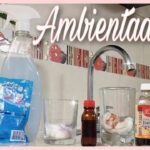 🏡✨ Descubre los mejores trucos caseros para crear aromas irresistibles en tu hogar
🏡✨ Descubre los mejores trucos caseros para crear aromas irresistibles en tu hogar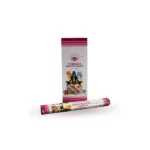 🏡✨ Descubre los mejores aromas caseros para la casa: ¡una experiencia sensorial única!
🏡✨ Descubre los mejores aromas caseros para la casa: ¡una experiencia sensorial única!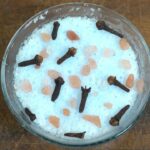 🏡🌿 Descubre los mejores 👃 aromas naturales para casa 🌺 – ¡Renueva tu hogar con fragancias deliciosas!
🏡🌿 Descubre los mejores 👃 aromas naturales para casa 🌺 – ¡Renueva tu hogar con fragancias deliciosas!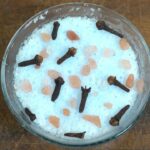 🌿✨Descubre los mejores aromas naturales para el hogar y crea un ambiente acogedor 🏡
🌿✨Descubre los mejores aromas naturales para el hogar y crea un ambiente acogedor 🏡 🌿🏡 Cómo hacer un 🍃 aromatizador ambiental casero: 5 recetas fáciles y económicas
🌿🏡 Cómo hacer un 🍃 aromatizador ambiental casero: 5 recetas fáciles y económicas 🌸✨ Aprende a hacer tu propio aromatizador casero: ¡Fragancia natural para tu hogar!
🌸✨ Aprende a hacer tu propio aromatizador casero: ¡Fragancia natural para tu hogar! 🌿 Descubre cómo hacer tu propio 🏡 aromatizador casero con aceites esenciales: ¡El toque perfecto para tu hogar!
🌿 Descubre cómo hacer tu propio 🏡 aromatizador casero con aceites esenciales: ¡El toque perfecto para tu hogar!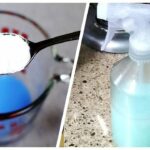 🌸 Descubre cómo hacer un aromatizador casero con suavizante y bicarbonato ✨
🌸 Descubre cómo hacer un aromatizador casero con suavizante y bicarbonato ✨ 🚿✨ Aromatizador casero para baño: Descubre cómo crear tu propio oasis de aromas
🚿✨ Aromatizador casero para baño: Descubre cómo crear tu propio oasis de aromas